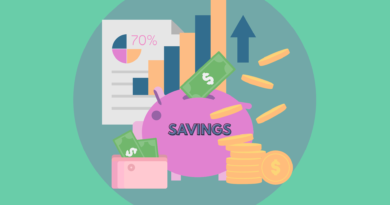Index Funds vs ETFs: Which Is Best for Your Investment Strategy?
Are you looking to grow your wealth through passive investing but feeling confused about the differences between index funds and ETFs? You’re not alone. Many investors struggle to decide between these two popular investment vehicles. Let’s break down the key differences between index funds vs ETFs and help you determine which might be better suited for your financial goals.

What Are Index Funds and ETFs?
Index Funds Explained
Index funds are mutual funds designed to track the performance of a specific market index, such as the S&P 500. When you invest in an index fund, you’re essentially buying a basket of securities that mirrors the composition of the index it tracks. According to data from the Investment Company Institute, index funds have grown to command more than $16 trillion as of year-end 2024.
ETFs Explained
Exchange-Traded Funds (ETFs) also track market indices, but they trade like individual stocks on exchanges throughout the day. Unlike index funds, which are priced once daily after the market closes, ETFs can be bought and sold at market prices throughout trading hours. The ETF market has grown considerably, with assets totaling around $15 trillion in the U.S. market as of early 2025.
Key Differences Between Index Funds vs ETFs
Trading Flexibility
ETFs: Offer intraday trading, allowing investors to buy or sell shares at current market prices throughout the trading day.
Index Funds: Can only be purchased or redeemed at the end of the trading day at the net asset value (NAV) price.
Minimum Investment Requirements
ETFs: Generally have lower barriers to entry since you can purchase as little as one share. Some brokerages even offer fractional shares of ETFs.
Index Funds: Often require minimum investments ranging from $1,000 to $3,000, though some brokerages offer no-minimum options.
Tax Efficiency
ETFs: Usually more tax-efficient due to their unique structure, which allows for in-kind transfers that minimize capital gains distributions.
Index Funds: Typically less tax-efficient as they must sell securities to meet redemptions, potentially triggering capital gains distributions to all shareholders.
Expense Ratios
Both index funds and ETFs are known for their low costs, but there can be differences, check some data from 2024:
ETFs: Average expense ratio of 0.48% and 0.69% for index and active ETFs.
Index Funds: Average expense ratio of 0.19% for major providers 0.60% for index mutual funds and 0.89% for actively managed mutual funds.
Which one might be best for your investment strategy?
Index Funds If:
- You prefer making regular, automated investments through methods like dollar-cost averaging
- You want to avoid trading fees (many brokerages offer proprietary index funds with no transaction fees)
- You’re investing in a tax-advantaged account like a 401(k) or IRA where tax efficiency is less important
- You’re uncomfortable with the idea of placing market orders and prefer the simplicity of end-of-day pricing
ETFs If:
- You want the flexibility to trade throughout the day
- You’re starting with a smaller investment amount
- You’re investing in a taxable account and want to minimize tax liabilities
- You’re interested in accessing more specialized or niche market sectors
The Bottom Line
Both index funds and ETFs offer efficient, low-cost ways to invest in diversified portfolios. Your choice between index funds vs ETFs should align with your investment goals, tax situation, and personal preferences.
Remember that regardless of which vehicle you choose, consistency and a long-term perspective remain the most important factors for investment success. Investors who maintain a balanced portfolio have shown significant return over the years even through market downturns.
Before making any investment decisions, consider consulting with a financial advisor who can help tailor a strategy to your specific situation and goals.
Want to learn more about smart financial planning? Check out these related articles:
- 👉Financial Protection: Essential Insurance vs. Money Wasters
- 👉How to Create a Crisis-Proof Budget: Simple Methods That Work
Frequently Asked Questions About Index Funds vs ETFs
Absolutely! Many investors use both investment vehicles in their portfolios. You might choose index funds for regular automated contributions in retirement accounts and ETFs for more specialized sector exposure in taxable accounts.
Do index funds or ETFs have better returns?
Neither inherently offers better returns as both are designed to track the same underlying indices. The difference in returns usually comes down to tracking efficiency, expense ratios, and tax implications rather than the vehicle itself.
No, the risk level is determined by the underlying assets, not whether it’s structured as an ETF or index fund. However, because ETFs can be traded throughout the day, some investors might be tempted to engage in more frequent trading, which can introduce behavioral risk.
For ETFs, you can start with as little as the price of one share (often $20-$300) or even less with brokerages offering fractional shares. For index funds, minimums typically range from $0-$3,000 depending on the fund provider.
Yes, many brokerages now offer automatic investment plans for ETFs similar to those available for index funds. However, index funds still tend to be more widely available in employer-sponsored retirement plans for automatic contributions.




Awesome blog! Do you have any recommendations for aspiring writers? I’m planning to start my own blog soon but I’m a little lost on everything. Would you recommend starting with a free platform like WordPress or go for a paid option? There are so many options out there that I’m completely confused .. Any tips? Cheers!